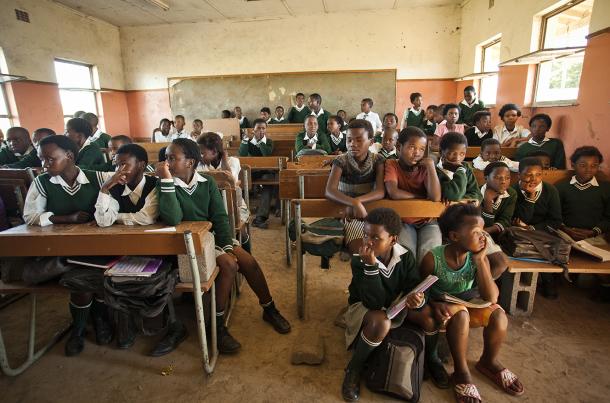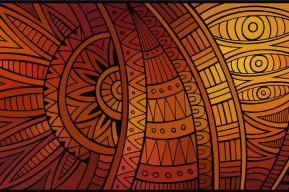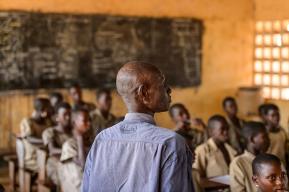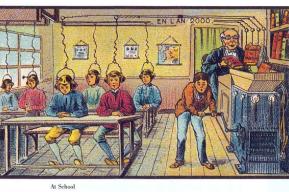Idea
Complex equation of maths education in South Africa

Nick Dall
Journalist in Cape Town, South Africa
The latest Trends in International Mathematics and Science Study (TIMMS) 2019 confirms what those on the ground have known for decades: South African school students are bad at maths. At primary school level, South Africa had the third lowest score out of the 64 countries. Things are no better at high school, where South Africa’s Grade 9 learners received the second lowest score out of 39 countries. Moreover, less than a third of all students in the final year of high school take maths – and only half of them pass their exams, according to data from the South African Institute of Professional Accountants (Midrand, Greater Johannesburg).
Understanding the problem starts with understanding South Africa’s history, says distinguished professor Jonathan Jansen of Stellenbosch University, about fifty kilometres from Cape Town. During apartheid, the Bantu Education Act of 1953 resulted in the under-education of people of colour. As Hendrik Verwoerd, Prime Minister from 1958 to 1966, infamously said: “What is the use of teaching the Bantu child mathematics when it cannot use it in practice? That is quite absurd. Education must train people in accordance with their opportunities in life, according to the sphere in which they live.”
Understanding the problem starts with understanding South Africa’s history
Now, almost 70 years later, South Africa's education system still bears the stains of Bantu Education – even though the policy was abandoned at the end of apartheid. Children at former Blacks-only schools continue to deliver abysmal maths results, while those at former whites-only schools perform on a par with their contemporaries in the US and Europe. While it’s extremely important to acknowledge this legacy of discrimination, says Jansen, the country should not be crippled by it. “All the other countries in southern Africa have similar histories,” he explains. “But when it comes to maths performance, we are by far the worst in the region.”
Lack of qualified teachers
Among the reasons for South Africa's poor maths results is a shortage of qualified teachers. Undesirable working conditions mean that for many students teaching is a last resort. To address the shortage of competent teachers, one-year courses were introduced to train graduates as teachers. Dr Jacques Verster’s qualitative case study focused on one of these post-graduate courses at one of the country’s universities of technology. He found that the university struggled to cope with the drastic increase in the course’s popularity (between 2014 and 2015 student numbers doubled, for example) and was “expected to do more with less”.
Moreover, low levels of engagement between students and lecturers (the course was mainly taught by part-time lecturers in the evening) meant that many trainee teachers were woefully underprepared at the end of the year-long course. But perhaps the biggest problem, according to Verster, was the lack of continuous professional development following completion of the course. “We graduate people,” he said. “And then we leave them on their own.”
Consequently, the general level of mathematics teachers is largely inadequate. Faith Ngwenya, a standards executive at the South African Institute of Professional Accountants, pulls no punches in her assessment: “Those who do teach the subject are not comfortable doing it. They teach learners solutions which they cannot explain themselves.”
Early learning is key
For Professor Jansen, teacher training is not the only issue. Along with other senior colleagues, he is concerned that, in recent years, rather than focusing on maths education at the foundation phase (students aged 5 – 9 years), efforts have been aimed at improving Grade 12 results – notably by introducing a soft-option subject called Maths Literacy. But the first years of education are crucial because “in mathematics you build on knowledge acquired earlier,” explains Jansen.
Weak maths results at foundation phase tend to persist throughout the education phase. “Needless to say, children who went to preschool do better at maths than those who didn’t. And children who come from homes with cultural capital do even better," he says. “If you’re in the poor working class and you don’t have your home, preschool and primary school working in your favour you will be constantly left behind.”
The legacy of apartheid will not be easy to overcome, but the experts refuse to give up. The stakes are high: maths develops cognitive skills which are part of 21st-century learning, explains Ngwenya. Beyond counting, these include the ability to think critically, communicate, collaborate and be creative. “It has nothing to do with crunching the numbers. It is all about being able to interpret, analyze, and solve problems.” Jansen agrees wholeheartedly, and adds: “It’s not just about skills, it’s also about attitude. Students get used to constant failure, and eventually they give up”. For Jansen, it’s time to break this spiral of failure.
Soluble problem
Taking action now can help prevent the situation from recurring and affecting the next generation. “This is a soluble problem,” Jansen stresses. “If we invested in literacy and numeracy in the foundation phase, the Grade 12 outcomes would be better.”
University education departments around the country are already doing their bit, working with poorer schools to improve their maths programmes. But involvement at the national level is the only way to reach all 26,000 public schools. “It is possible,” Jansen insists. “Namibia did it in the 1990s and they have far fewer resources than we do… South Africa has 26 very good universities, seven of which are world-class. Are you telling me you can’t solve this problem?”
Universities around the country are working with poorer schools to improve their maths programmes
When asked how to go about fixing the problem, his answer is surprisingly simple: “First, we need a plan. And second, we need to put teachers at the centre of the plan.”

In the same issue










